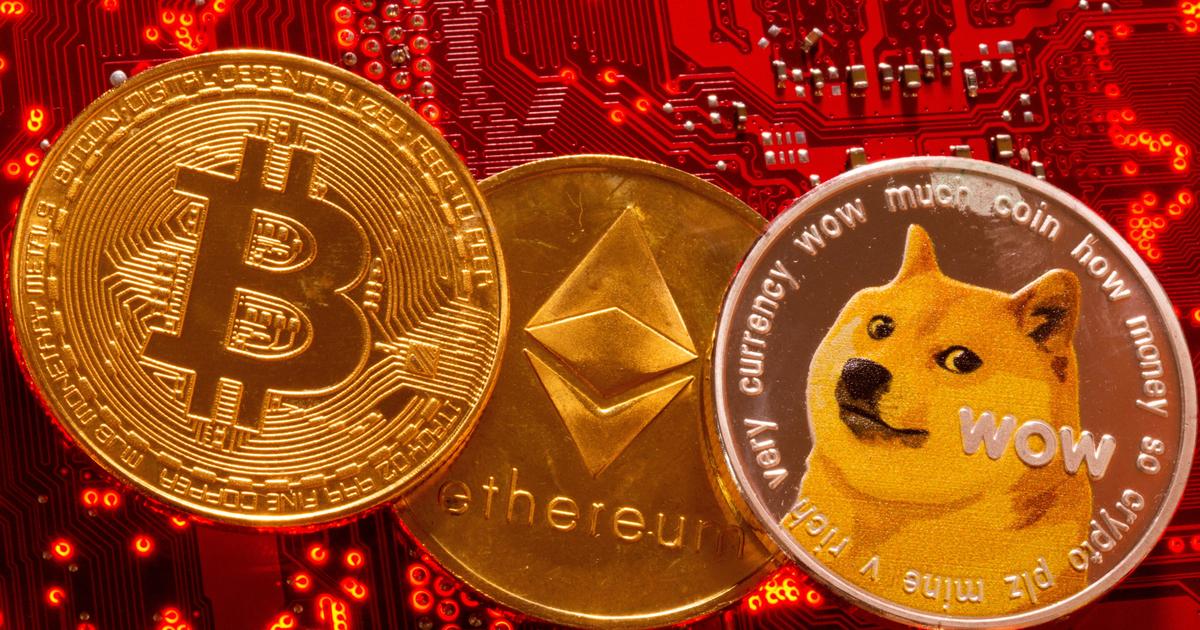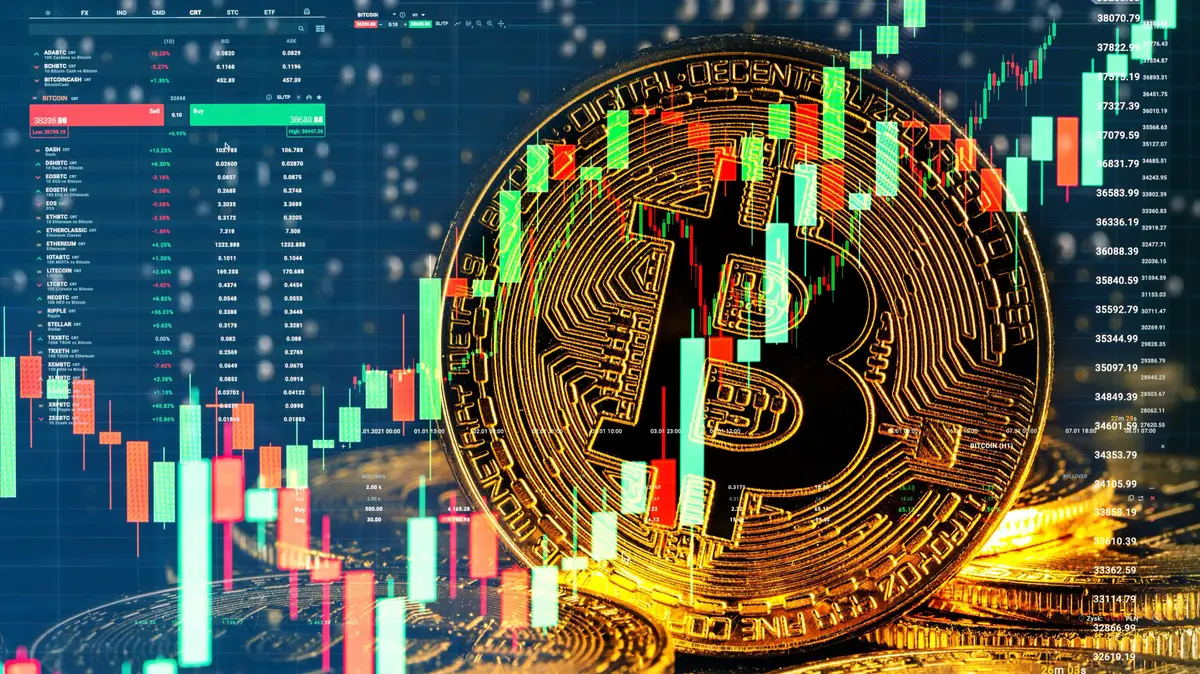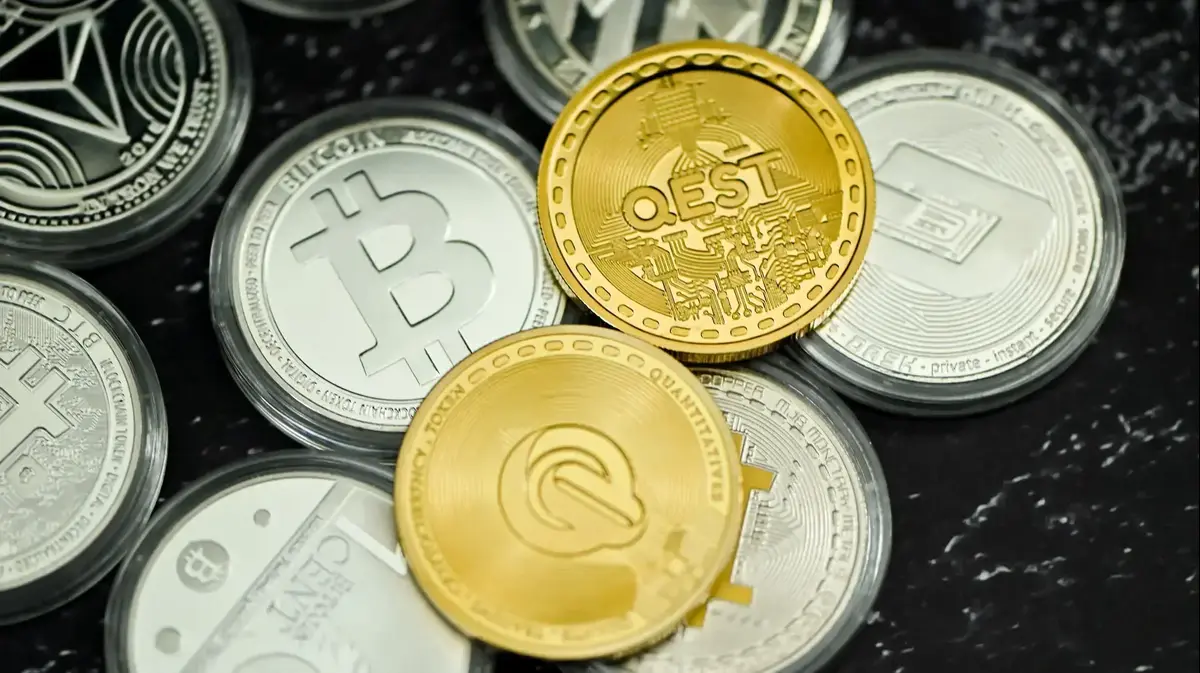Philippe Herlin is a researcher in finance and holds a doctorate in economics from the National Conservatory of Arts and Crafts in Paris.
FIGAROVOX. - For some economists, cryptocurrencies could eventually replace centralized traditional currencies. Doesn't the fall in the price of the main cryptos call this idea into question?
Philip Herlin. -
It must be understood that the countries where cryptos are taking an increasing share of exchanges are countries where the currency is itself failing, either because there is a lot of inflation or because it is collapsing. .. This is for example the case of Lebanon whose banking system has collapsed, Venezuela, Argentina, or many African countries which have very volatile inflationary currencies such as Nigeria.
In addition, these countries are subject to exchange controls, which greatly hinder cross-border trade.
This is why cryptocurrencies, Bitcoin, the stablecoin, are taking an increasing place in the transactions of these countries.
Whereas in the OECD countries, Europe, the United States, Japan, the currencies are relatively stable, although
there are slight inflations at the moment, and there are few exchange controls.
The inhabitants of Western countries therefore have no particular interest in using cryptocurrencies as a means of payment, they are just a means of investment.
Cryptos do not replace traditional currencies when they are doing well.
However, you have to consider that a lot of money printing was done in Europe and Japan, and if a major currency like the Yen or the Euro starts to fail, if inflation starts to get out of hand, then it will be an increasing use of cryptocurrencies as a medium of exchange.
But there is no natural law that decentralized currencies (cryptocurrencies) will eat centralized currencies.
I would even add that,
if one day a centralized currency decides to reconnect with gold, then it will be as solid as Bitcoin.
This was the case with currencies until 1971, but this link has been broken, so cryptos are emerging as an alternative in the event of a potential collapse.
Read alsoBitcoin, a new El Dorado for young French people
Regarding the issue of stability, it must be admitted that cryptocurrencies are quite volatile today because of their still small size.
But like gold, which is itself a decentralized international currency, we can hope for the emergence of a lasting and stable cryptocurrency over the long term.
It is something entirely possible.
As users and processors of Bitcoin increase, as the price increases, then this currency will weigh more and more and the fluctuations will decrease.
Also, if Bitcoin is volatile, it is on the upside.
That is to say that over the long term we remain a winner, despite the few drops.
While the collapsed currency of Venezuela has no chance of rising again.
Likewise,
the Turkish lira or the Argentine peso, which are severely devalued due to inflation, will never take 100% of their value in a few days.
It is true that it was a blow for Bitcoin, it fell below $20,000 when it was over $50,000 a year ago.
But for me it is obvious that he will return to this level, whether in a year, two years or more, but he will come back to it.
Cryptocurrencies have often been praised for their transparency and security, thanks to the decentralized blockchain system. Don't the scandals and the collapse of the FTX company put an end to this myth by showing the problems of opacity and reliability of the main exchange platforms?
The bankruptcy of FTX, which was the second centralized crypto market, refers to the painful learning of the cryptocurrency system.
When we entrust our bitcoins to a centralized platform, it amounts to putting money in the bank, we then lose the absolute transparency guaranteed by the blockchain.
There is indeed a certain opacity, a certain risk in these centralized markets.
But there are alternatives, decentralized finance protocols, be it AAVE or Makerdao, which are completely transparent to the blockchain.
That is to say, the boss of AAVE does not do what he wants with our cryptocurrencies, he cannot do massive embezzlement like the former CEO of FTX.
Our money does not belong to these decentralized platforms at any time,
Bitcoin symbolizes the separation of state and money, as in 1905 we separated state and church.
Philippe Herlin
I think these decentralized cryptocurrency markets will gain a lot of customers, who are becoming suspicious of traditional marketplaces.
A lot of people lost money in the collapse of FTX, which is really unfortunate, but they will be more vigilant from now on.
What fooled people about this platform is that it got great media coverage, and a lot of tech funds invested in it, which is usually a sign of reliability.
I myself was very surprised by this sudden bankruptcy, I had never imagined such embezzlement and such risky management of funds.
So here it is, decentralized platforms are a good alternative to overcome this problem of opacity.
Regarding the risks of hacking,
Don't classic centralized money systems, such as the euro or the dollar, have certain advantages, for example by allowing monetary policies with the help of central banks?
Indeed, the advantage of centralized systems is that they have a central bank at the top, which can act in the event of problems, as we saw with the Greek crisis in 2011. Sometimes that is not enough, especially in Lebanon where the central bank lied, which led to the collapse of the banking system.
But in general it always manages to save the banking system at the cost of printing money which ends up being transformed into inflation... It is therefore an advantage, but a relative advantage.
The central bank makes it possible to have a guarantee system, but which is generally quite weak and has serious consequences.
Cryptocurrencies do not allow states to put in place recovery plans, monetary policies, which we can see as a certain good.
States have, in fact,
tendency to abuse that power.
At the time of the strict gold standard, in the 19th century and until 1914, there were no monetary policies as such, in the sense that all currencies were strictly based on gold, which did not prevent to have a very strong growth.
While today we use and abuse the printing press, always on the pretext of facilitating credit and investment so that growth occurs, while the results are rarely there.
You have to ask yourself the right questions, it's not printing money that creates growth.
in the sense that all currencies were strictly gold-based, which did not prevent it from having very strong growth.
While today we use and abuse the printing press, always on the pretext of facilitating credit and investment so that growth occurs, while the results are rarely there.
You have to ask yourself the right questions, it's not printing money that creates growth.
in the sense that all currencies were strictly gold-based, which did not prevent it from having very strong growth.
While today we use and abuse the printing press, always on the pretext of facilitating credit and investment so that growth occurs, while the results are rarely there.
You have to ask the right questions, it's not printing money that creates growth.
This explains why China is very advanced in the field of digital currencies and digital transactions.
Being able to track all monetary transactions is the culmination of social control.
Philippe Herlin
On the contrary, I think the currency must be neutral, there must be no inflation, the central bank must intervene as little as possible.
The currency must be stable because it is what serves to connect exchanges, to invest, to make forecasts in the future, so there must be no inflation, no manipulation, and avoid at all costs brutal changes monetary policies.
After the subprime crisis, the Greek crisis, and finally the Covid crisis where we shattered all money printing records, today we are paying for the excess of monetary policies with inflation of 10% in Europe.
And another advantage that cryptocurrencies have over traditional banks is that we all have access to all of our money at the same time.
, while crypto platforms can satisfy demand if everyone decides to withdraw their funds at the same time, without collapsing.
So you are advocating, in a way, to "give monetary power back to the people"?
Yes, if we take Bitcoin, we don't even know who created it, no one has authority over it, it symbolizes the separation of state and money, as in 1905 we separated the State and Church.
There is legislation, when we buy bitcoin we have to register with a platform, we register our identity, but it does not depend on a State or a central bank which will take such and such a decision.
The characteristics of Bitcoin are not going to change, there will not be more than 21 million, and no one is going to decide on a key rate.
It is therefore the market that decides, that is to say the “people” or rather the “people of the bitcoinner”, those who use it, who make transactions, or who save.
Its value depends on the users.
Read alsoShould we continue to invest in cryptocurrencies?
Isn't the digitization of money and transactions a means of tracing the individual, of knowing everything he does, exchanges and buys?
So this question also concerns traditional currencies which are becoming more and more digitized.
It was not Bitcoin that invented electronic money, even if cryptocurrencies are an important factor in the dematerialization of money.
Regarding centralized currencies, the disappearance of cash, material money, is felt as an attack on freedoms because all our transactions are traced.
This explains why China is very advanced in the field of MNBC (digital central bank currencies) and digital transactions, because it is very much in the spirit of social credit.
Being able to track all monetary transactions is the culmination of social control.
There are also projects for the euro and for many other countries.
When'
we will have totally eliminated cash, people's transactions will be fully traceable.
Whereas with Bitcoin, even if it is not anonymous but pseudonymous, we keep room for manoeuvre, freedom.
Especially since it does not depend on any authority.
And the more states force the disappearance of cash and the imposition of MNBCs, the more it will strengthen the use of Bitcoin and other cryptocurrencies.
Cryptocurrencies are a means of escaping digital transaction surveillance.
And the more states force the disappearance of cash and the imposition of MNBCs, the more it will strengthen the use of Bitcoin and other cryptocurrencies.
Cryptocurrencies are a means of escaping digital transaction monitoring.
And the more states force the disappearance of cash and the imposition of MNBCs, the more it will strengthen the use of Bitcoin and other cryptocurrencies.
Cryptocurrencies are a means of escaping digital transaction surveillance.









/cloudfront-eu-central-1.images.arcpublishing.com/prisa/QLZQABDBZ5HQNGMWYSXWPVJXMY.JPG)





